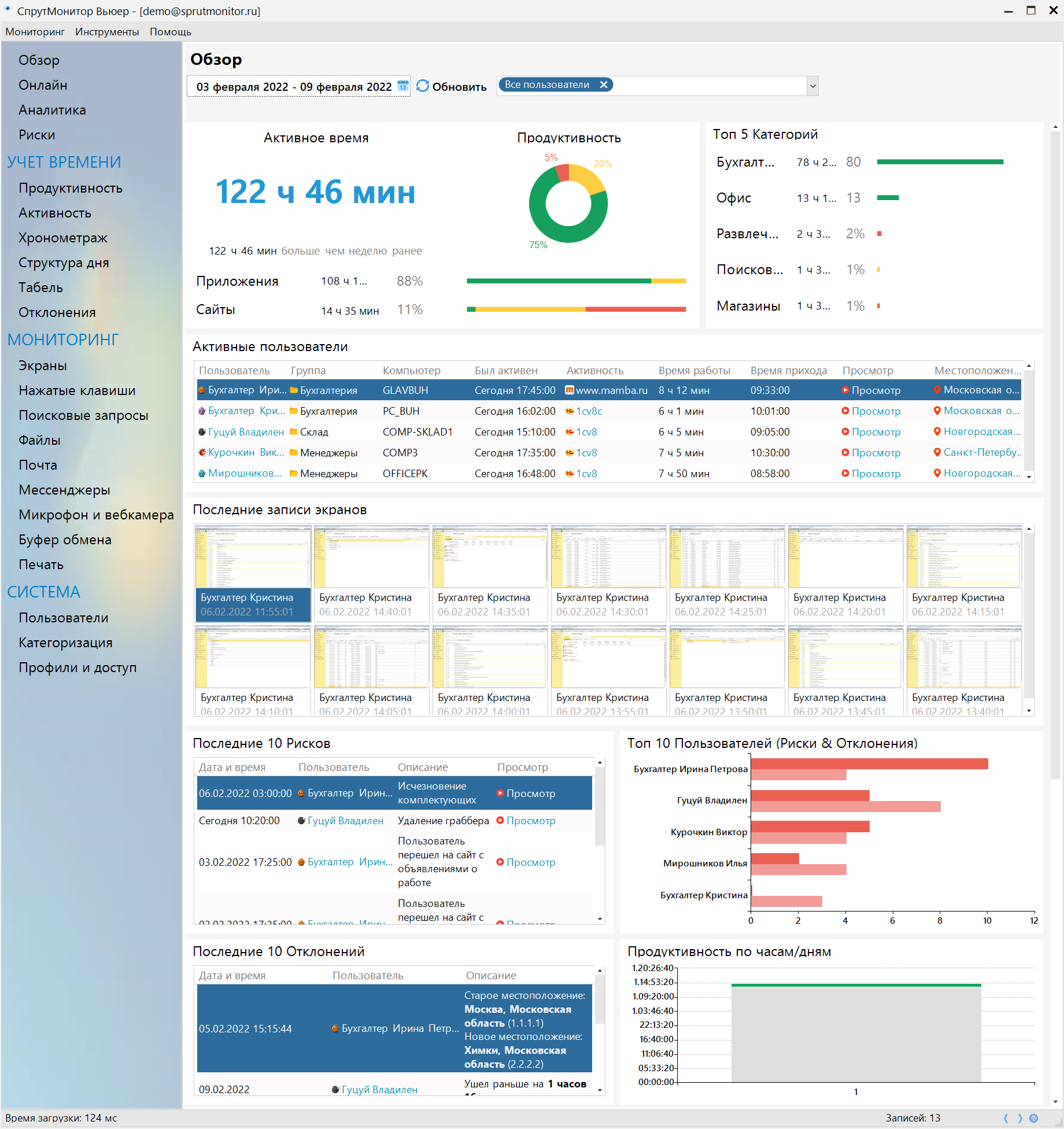Employee Monitoring in Energy Enterprises
The energy sector and public utilities have historically faced threats from hackers, environmental activists, and individuals engaging in industrial and state espionage. As a result, security has become a top priority for these industries.
However, criminals are now exploiting employees of these organizations to gain access to information and management systems, using methods such as social engineering, data manipulation, bribery, and collusion. As insiders, these employees already have access to critical systems and can cause much more damage than outsiders.
The energy sector often utilizes outsourcing partners to address many issues. Contractors need to exchange confidential information with clients. This data must be reliably protected.
OctoWatch is a comprehensive solution for energy and public utility enterprises, combining the functions of detecting internal threats (insiders), preventing data leaks (DLP), and user activity monitoring capabilities.

Here are just a few examples of the benefits that an energy company can gain by implementing OctoWatch:
You will gain insights into what specific users are doing when connecting to critical systems, including servers, terminals, and remote control points.
By configuring an intelligent user activity analysis system, you can prevent the theft of valuable intellectual property such as testing data, geological exploration results, maps, plans, etc.
Limit the capabilities of privileged users, e.g., escalating access rights, executing potentially malicious software, etc.
Protect information on clients, contractors, accounting records, and other confidential data.

